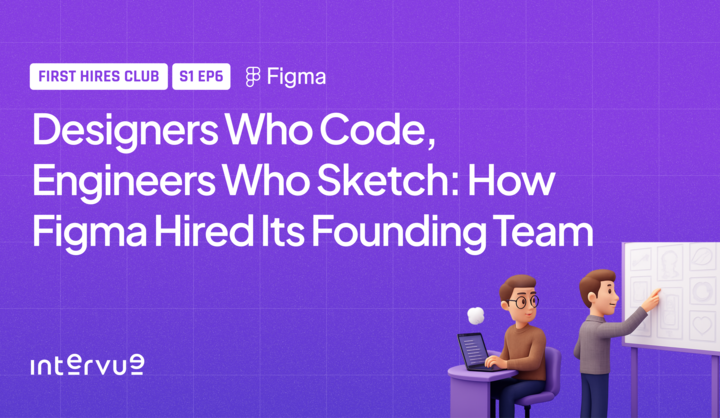Interview Insights: 5 Key Reasons They Matter
They are a vital mechanism for ensuring that the right people are placed in the right roles. Through interviews, employers can gather essential information that goes beyond what is written on a resume.

In the competitive landscape of today's job market, interviews are more than just a formal step in the hiring process. They are a vital mechanism for ensuring that the right people are placed in the right roles. Through interviews, employers can gather essential information that goes beyond what is written on a resume. This process is indispensable for making informed hiring decisions that will benefit the organization in the long run. In this blog, we will explore the five main reasons why interviews hold such importance.
Assessing Candidate Fit
Personal and Professional Fit
The concept of "fit" encompasses both personal and professional dimensions. Interviews allow employers to gauge how well a candidate's personality, values, and work style align with the company's culture and values. A resume can tell you a lot about a candidate's qualifications, but only an interview can reveal if they will thrive within the organization's environment.
Cultural Fit
Cultural fit is increasingly recognized as a crucial factor in hiring. During an interview, employers can ask targeted questions that reveal a candidate's alignment with the company’s mission, vision, and values. This alignment is essential for long-term job satisfaction and employee retention. A good cultural fit means that the candidate is likely to contribute positively to the workplace environment and be more engaged in their role.
Team Dynamics
Interviews also provide an opportunity to assess how a candidate might interact with existing team members. Understanding team dynamics is critical, as a new hire can significantly impact team productivity and morale. Through interviews, hiring managers can evaluate a candidate’s interpersonal skills, their ability to work collaboratively, and their potential to integrate smoothly into the
Evaluating Skills and Competencies
Technical Skills
While resumes list qualifications and experiences, interviews allow employers to delve deeper into a candidate's technical skills. Practical assessments or problem-solving questions can be used to evaluate the candidate’s proficiency in key areas relevant to the job. This helps in verifying the accuracy of the information provided in the resume and ensures that the candidate possesses the necessary technical expertise.
Soft Skills
Soft skills such as communication, teamwork, and problem-solving are increasingly valued in the workplace. Interviews are the perfect setting to assess these skills, which are often difficult to measure through written applications. By observing how candidates respond to questions, interact with interviewers, and present themselves, employers can gauge their soft skills more accurately.
Learning Ability
In today's fast-paced work environment, the ability to learn and adapt is crucial. Interviews can include questions or scenarios that assess a candidate’s learning agility and their willingness to embrace new challenges. This is particularly important for roles that require continuous learning and adaptation to new technologies or methodologies.
Understanding Work Ethic and Attitude
Motivation and Drive
An interview is a prime opportunity to understand a candidate's motivation and drive. Questions about past experiences, challenges, and achievements can provide insight into what motivates the candidate and how they approach their work. Understanding this aspect is vital for determining if the candidate will be a dedicated and enthusiastic employee.
Attitude Towards Work
A candidate’s attitude towards work can significantly influence their performance and their interactions with colleagues. Interviews help employers assess whether a candidate has a positive attitude, is resilient in the face of challenges, and possesses a growth mindset. These qualities are often predictors of long-term success and job satisfaction.
Commitment and Reliability
Interviews can also shed light on a candidate's commitment and reliability. Questions about past job tenures, reasons for leaving previous positions, and future career goals can help employers understand a candidate’s level of commitment. This information is crucial for making hiring decisions that will benefit the organization in the long run.
Building Relationships and Employer Branding
Establishing a Connection
The interview process is not just about evaluating candidates; it is also an opportunity to establish a connection and build relationships. A positive interview experience can leave a lasting impression on candidates, influencing their perception of the company. This is particularly important in a competitive job market where top talent has multiple options.
Enhancing Employer Brand
Every interaction with a candidate during the interview process contributes to the company’s employer brand. A well-structured and respectful interview process reflects positively on the organization, enhancing its reputation as a desirable place to work. This can attract top talent and set the company apart from competitors.
Candidate Experience
The candidate experience during the interview process is critical. A positive experience can lead to higher acceptance rates for job offers and can also result in candidates recommending the company to others, even if they do not get the job. Conversely, a negative experience can harm the company’s reputation and make it harder to attract high-quality candidates in the future.
Providing Insight and Clarity
Clarifying Role Expectations
Interviews are a two-way street. While employers assess candidates, candidates also gain a clearer understanding of the role and the organization. Detailed discussions about job responsibilities, expectations, and the work environment help candidates determine if the position is the right fit for them. This mutual understanding is crucial for ensuring job satisfaction and reducing turnover.
Addressing Concerns and Questions
Candidates often have concerns and questions about the role, the team, and the company culture. The interview is an ideal time to address these queries, providing candidates with the information they need to make an informed decision. Open and honest communication during the interview process builds trust and sets the foundation for a positive working relationship.
Reducing Uncertainty
For both parties, the interview process reduces uncertainty. Employers gain a comprehensive understanding of the candidate's capabilities and potential, while candidates get a realistic picture of what to expect in the role. This clarity helps in making well-informed decisions, ensuring that both the employer and the candidate are confident in their choice.
Bottom Line
Interviews are an indispensable part of the hiring process, serving multiple crucial functions that go beyond assessing qualifications on paper. They help in evaluating candidate fit, skills, and attitude, building relationships, and providing clarity for both parties. A well-conducted interview process not only aids in selecting the best candidate but also enhances the company’s reputation and contributes to long-term organizational success.
Investing time and effort into a thorough and thoughtful interview process is essential for any organization aiming to attract and retain top talent. By understanding and appreciating the importance of interviews, employers can make more informed hiring decisions that benefit both the organization and its employees.



